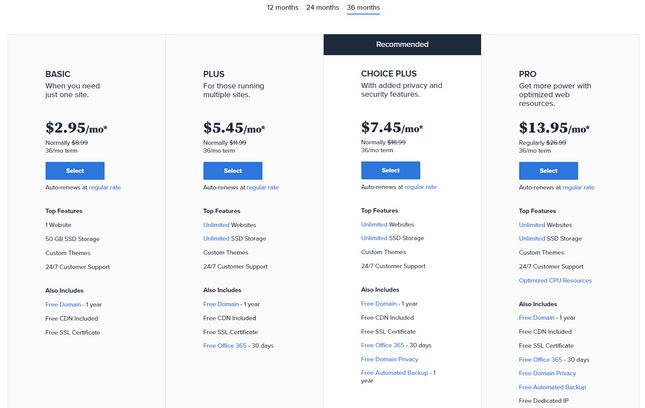Last updated on May 2nd, 2025 at
So, you’re trying to choose between Namecheap vs Bluehost for your website hosting? You’re in the right place! Think of it like picking between two helpful tools — both can get the job done, but which one works better for you?
Namecheap is known for its affordable pricing and easy domain management. It’s a solid choice for beginners, especially if you’re starting small and want something simple. However, it might not be the strongest when it comes to speed and advanced hosting features.
On the other hand, Bluehost is one of the most recommended hosts for WordPress users. It’s beginner-friendly, offers great performance, and includes helpful tools to build your site fast. But some users say its renewal prices are a bit high, and support can be hit or miss during peak times.
In this Namecheap vs Bluehost comparison, I’m not here to pick a winner. I’ll break down the pros, cons, and main differences so you can choose the one that fits your needs — whether you’re starting a personal blog, a portfolio, or even a small business site.
| Feature | Bluehost (Winner) | Namecheap |
|---|---|---|
| Rating | 4.5 stars out of 5 | 3.6 stars out of 5 |
| Price | From $1.99/month | From $1.58/month |
| Uptime Guarantee | 99.9% | 98.9% |
| Coupons | Bluehost coupon 75% OFF | Namecheap coupon 70% OFF |
| Storage Space | 10 GB SSD | 20 GB SSD |
| Free Domain | Yes (first year) | Yes (first year) |
| Free SSL Certificate | Yes | Yes |
| Site Migration | Free WordPress migration (1 site); Paid (up to 5 sites) | Free WordPress and cPanel migration |
| Automated Backups | Daily backups (free 1st year, not with Basic Plan) | Weekly backups |
| Email Accounts | Free (up to 10 accounts) | Free |
| 24/7 Live Support | Yes | Yes |
| Money-back Guarantee | 30-day
| 30-day
|
Namecheap vs Bluehost – Pricing
💬 Who win For Pricing:
Namecheap is the more budget-friendly option, perfect for beginners or small websites. Bluehost, while slightly pricier, gives you more power, better performance, and stronger support — great if you want something that can grow with your site.
Bluehost Hosting Plans

Best for: Users who want better performance, features, and strong customer support
💰 Starts at $2.95/month
📅 30-Day Money-Back Guarantee
Basic Plan – $2.95/month
✅ 1 Website
✅ Free Domain (1st Year)
✅ Free SSL
✅ Free CDN
✅ 10 GB SSD Storage
✅ ~15,000 Monthly Visits
✅ 3 Months Free Pro Email
✅ Free WordPress Migration
✅ 24/7 Chat Support
Plus Plan – $4.95/month
✅ Unlimited Websites
✅ Free Domain (1st Year)
✅ Free SSL & CDN
✅ 20 GB SSD Storage
✅ ~50,000 Monthly Visits
✅ 3 Months Free Pro Email
✅ Free WordPress Migration
✅ 24/7 Chat Support
Choice Plus Plan – $5.45/month
✅ Unlimited Websites
✅ 50 GB SSD Storage
✅ ~200,000 Monthly Visits
✅ Extra Privacy & Security
✅ Free Domain, SSL, CDN
✅ Free Migration & Pro Email Trial
✅ 24/7 Chat Support
Pro Plan – $13.95/month
✅ Unlimited Everything
✅ 100 GB SSD Storage
✅ ~400,000 Monthly Visits
✅ More Power & Speed
✅ All Premium Features Included
✅ 24/7 Support
🟡 Heads Up: Prices increase after the first term
🟢 Why Bluehost?
✔️ Reliable and beginner-friendly
✔️ Fast performance
✔️ Excellent customer support
Namecheap Hosting Plans

Best for: Users on a tight budget who want simple, affordable hosting
💰 Starts at $1.98/month
📅 30-Day Money-Back Guarantee
Stellar Plan – $1.98/month
✅ 3 Websites
✅ 20 GB SSD Storage
✅ 30 Email Accounts
✅ Free Domain Name
✅ Website Builder + AI Tools
✅ Renews at $44.88/year
Stellar Plus Plan – $2.98/month
✅ Unlimited Websites
✅ Unmetered SSD Storage
✅ Unlimited Email Accounts
✅ Free Domain Name
✅ AutoBackup
✅ Website Builder + AI Tools
✅ Renews at $68.88/year
Stellar Business Plan – $4.98/month
✅ Unlimited Websites
✅ 50 GB SSD Storage
✅ Cloud Storage + AutoBackup
✅ Free Domain
✅ Unlimited Email Accounts
✅ Website Builder + AI Tools
✅ Renews at $108.88/year
🟡 Heads Up: Performance and support are not as strong as Bluehost
🟢 Why Namecheap?
✔️ Super affordable
✔️ Good for small, personal sites
✔️ Great value for the price
🔍 So, Which One Should You Pick?
👉 Choose Bluehost if you want a reliable host with great performance, strong customer support, and features that grow with your site. It’s worth the extra cost if you’re serious about your website.
👉 Go with Namecheap if you’re just starting out, on a tight budget, or building a small website. It’s a simple, low-cost way to get online — nice for beginners who don’t need all the bells and whistles but with worst performance (yet).
Ease of Use: Namecheap vs Bluehost
💬 Who win For ease of use:
Bluehost takes the win for simplicity and beginner-friendliness. Its clean dashboard, step-by-step setup checklist, and guided tools make it a breeze for first-time users. Namecheap is also easy to use but leans more on traditional tools like cPanel, which can feel a bit technical if you’re just starting out.
Bluehost – Very Beginner-Friendly

Best for: First-time website owners who want an easy, guided setup experience
Bluehost makes it very easy to get started. The dashboard is clean and modern, and it includes a helpful to-do list that walks you through everything step by step — from installing WordPress to setting up your email. You won’t need to mess with cPanel unless you want to.
What I liked:
✅ Beginner-friendly dashboard
✅ Step-by-step checklist
✅ Easy WordPress setup
✅ 24/7 chat support when you’re stuck
🟢 Why Bluehost?
✔️ Ideal if you’ve never built a website before
✔️ Everything is in one place, no confusion
✔️ Fast and helpful support whenever you need it
Namecheap – Easy, but a Little Less Intuitive

Best for: Budget-conscious users who don’t mind using cPanel for advanced settings
Namecheap also has a clean dashboard, and it’s easy to manage your domains and hosting from one place. But it doesn’t guide you as much as Bluehost does. For setting up emails, WordPress, or databases, you’ll be using cPanel directly — which might feel a bit advanced if you’re new.
What I liked:
✅ Clean interface
✅ Easy domain and renewal management
✅ Free logo maker for branding
✅ Budget-friendly plans
🟡 What’s missing?
⚠️ No setup checklist
⚠️ Less hand-holding for beginners
⚠️ cPanel can be overwhelming at first
My Recommendation:
If you’re completely new and want the easiest, most guided experience, go with Bluehost. It’s designed for beginners and helps you get online without feeling lost.
Namecheap is still user-friendly and affordable, but you might need a bit more time to get used to how things work — especially if you’ve never used cPanel before.
🏆 WINNER – Bluehost for beginner-friendly ease of use
Performance: Namecheap vs. Bluehost
💬 Who win For Performance:
Bluehost clearly takes the lead in overall performance. It offers better uptime, faster response times, and more reliable handling of high traffic. Namecheap is more budget-friendly but doesn’t perform as well under pressure or with loading speed.
Uptime
Bluehost

I tested Bluehost over a couple of months, and I was happy with their reliability. They had an excellent 99.99% uptime, meaning your website will almost never go down. During my tests, there were only 6 outages, adding up to 11 minutes of downtime. That’s really good!
Namecheap

Namecheap didn’t do as well. During my 2-week test, they had 16 outages, which caused 31 minutes of downtime. Their uptime was 99.82%, which isn’t bad but isn’t as good as Bluehost. Plus, their website claims 100% uptime, so I expected better results.
✅ Winner: Bluehost for better uptime and overall reliability.
Response Time
Bluehost

Bluehost’s response time was 361ms, which is pretty fast. The quicker the response time, the faster your website loads, and that’s a good thing for your visitors.
Namecheap

Namecheap had a slower response time of 1.05s. That’s more than twice as long as Bluehost’s, which can make your website feel slower.
✅ Winner: Bluehost for quicker server response.
Website Speed
Bluehost

Bluehost is faster when it comes to loading websites. Their Largest Contentful Paint (LCP) time was 1.8s, and the Fully Loaded Time was also 1.8s. These numbers are great, meaning your website loads quickly for visitors.
Namecheap

Namecheap’s LCP time was 2.3s, and the Fully Loaded Time was 2.7s. While not terrible, these times are a bit slower, which could lead to a slightly worse user experience and lower rankings on Google.
✅ Winner: Bluehost for faster site loading times.
Stress Testing: Handling Traffic
Bluehost

I tested how well Bluehost handles lots of visitors by sending 50 virtual users to the website at once. Bluehost did great with this test. The response time stayed mostly steady, even with 50 visitors at the same time. There were only a few small spikes, but nothing major. This means Bluehost can handle more traffic without any issues.
Namecheap

Namecheap didn’t do so well when I tested it with 50 virtual users. There were 440 failed requests, meaning the website couldn’t handle the traffic properly.

When I lowered the number of visitors to 30, it worked better, but there were still 83 failed requests, and the response time wasn’t as good by the end.
✅ Winner: Bluehost for handling traffic better without breaking down.

